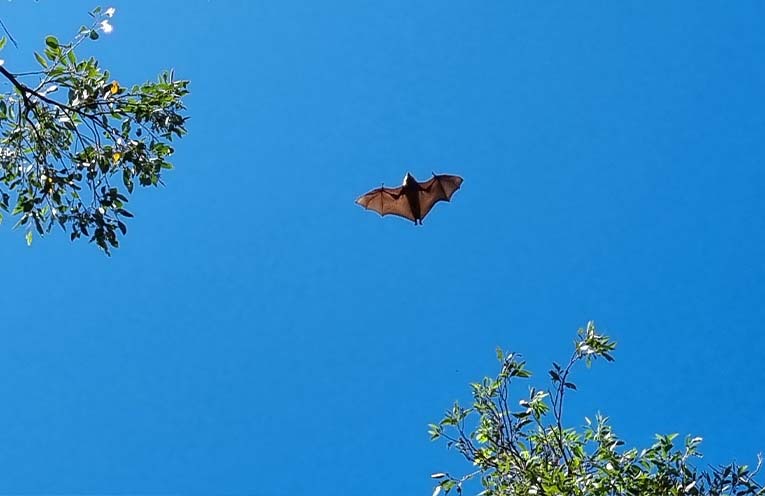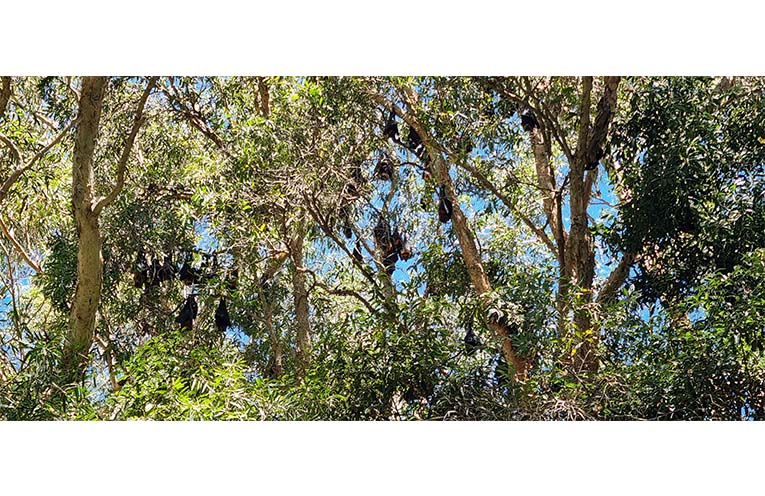
FLYING foxes have been seen swarming the skies of the Myall Coast all summer, their smells pervading the Hawks Nest side of the Singing Bridge, their screeches audible throughout the night.
Wildlife In Need of Care (WINC) volunteer and call coordinator Nat explained why these creatures are so important to the local ecosystem.
 Advertise with News of The Area today.
Advertise with News of The Area today.It’s worth it for your business.
Message us.
Phone us – (02) 4981 8882.
Email us – media@newsofthearea.com.au
“Flying foxes are incredibly smart creatures, sweet in nature, as soon as they realise that you’re there to help, they settle into care quickly and get to know you,” said Nat, who has a special soft spot for these ‘sky puppies’.
“They are ‘keystone pollinators’; if you ever want koalas, you will need the flying foxes,” Nat explained.
“Their primary diet is eucalypt blossoms, many of which only open at night, and bees are not night-time active, but flying foxes are.
“They move around the tree branches, carrying pollen in their fur and fly from tree to tree.”
The flying fox ‘camp’ near the Singing Bridge is, in fact, composed of at least three highly social sub-species: the local grey-headed variety, the more regional black-headed kind, and the smaller ‘Little Reds’ that migrate from Queensland.
“Flying foxes can range up to 3500km in flight, and the members of the Singing Bridge camp are the same as those at Bobs Farm, alternating between the sites every other year,” Nat said.
Another major camp at Raymond Terrace has been battling for space with the ibis colony that has taken root in the wetland at the corner of Adelaide and William Bailey Streets.
“As well as the blue-green algal blooms that affect the stagnant water in Raymond Terrace, the ibis may destroy the trees there, forcing flying foxes to end up in backyards,” Nat warned.
Even the sticky bat poo, the scourge of many car ducos, is environmentally valuable, as it also sticks to burned out forests and fertilises new growth, which is essential after bushfires.
By Thomas O’KEEFE

